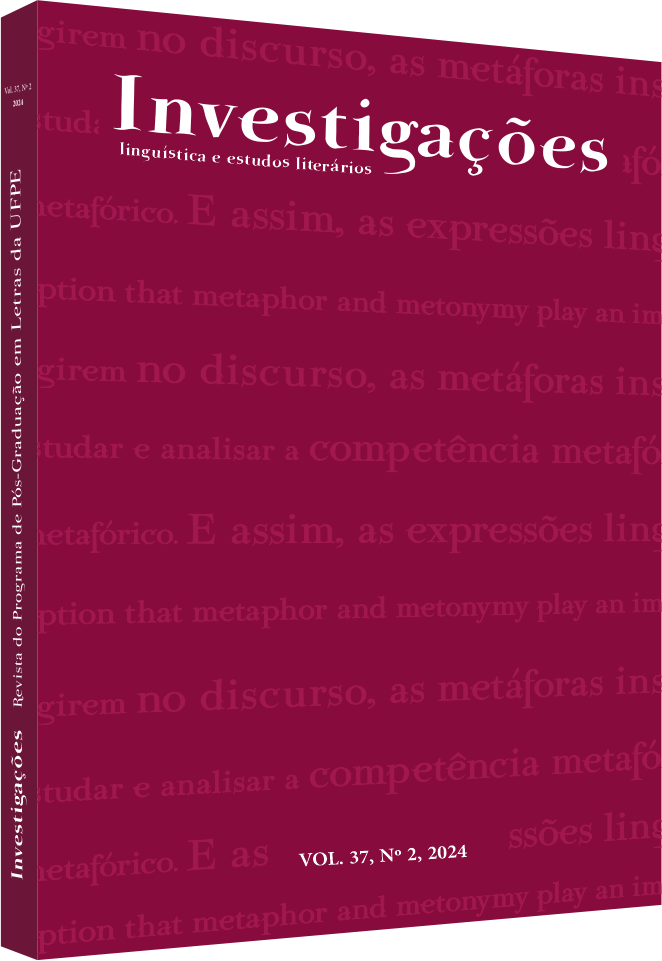Frida Kahlo fashion and anti-fashion: a study on the relationships of meaning
DOI:
https://doi.org/10.51359/2175-294x.2024.263045Keywords:
discourse, meaning relations, fashion Frida, anti-fashion FridaAbstract
In this paper, I analyze utterances that refer to the plastic artist Frida Kahlo, namely “fashion icon” and “anti-fashion appearance”, they were respectively published on Elle magazine and on Carta Capital magazine. Having as objective the intention of pointing out how such utterances create relations of meanings; I question how these relations of power determine them. Under the perspective of the Discourse Analysis of materialistic orientation, the analytical procedure used examined the different interpretative positions being used, and the reproduction of meaning effects. The analysis indicates that the utterances studied are a result of the social classes in conflict, they are determined by ideology and by the capitalistic system.
References
ACEVEDO CONDE, María Luisa. El vestido Oaxaqueño. In: ACEVEDO CONDE, María Luisa; GASGA, Eva Elena Ramírez (Org.). La cultura zapoteca: una cultura viva. Tehuantepec e Ixtepec, Oaxaca: Universidad del Istmo, 2009. p. 13-71.
AUTHIER-REVUZ, Jaqueline. Heterogeneidade(s) enunciativas(s). Trad. Celene Cruz e João W. Geraldi. Cadernos de Estudos Linguísticos, Campinas, n. 19, p. 25-42, jul-dez/1990.
ALTHUSSER, Louis. Ideologia e Aparelhos Ideológicos de Estado. In: ZIZEC, Slavoj (org.). Um mapa da ideologia. Rio de Janeiro: Contraponto, 1996.
BARBOSA, Carlos Alberto Sampaio. A Revolução Mexicana. São Paulo: UNESP, 2010.
CONDE, María Luisa Acevedo. El vestido Oaxaqueño. In: La cultura zapoteca: una cultura viva. Eva Elena Ramírez Gasga (Org.). Tehuantepec e Ixtepec, Oaxaca: Universidad del Istmo, 2009. p.13/71.
COURTINE, Jean-Jacques. Análise do discurso político: o discurso comunista endereçado aos cristãos. São Carlos. EDUFSCAR, 2009.
HERRERA, Hayden. Frida: a biografia. Trad. Renato Marques. São Paulo: Editora globo, 2011.
LIPOVETSKY, Gilles; SERROY, Jean. A estetização do mundo. Viver na era do capitalismo artista. Tradução: Eduardo Brandão. São Paulo: Companhia das Letras, 2015.
MARX, Karl; ENGELS, Friedrich. Sobre literatura e arte. 4 ed. Tradução Albano Lima. Editorial Estampa: Lisboa, 1974.
MARX, Karl. O capital: Crítica da economia política. O processo de produção de capital. Tradução de Rubens Enderle. São Paulo: Boitempo Editorial, 2011.
MONTFORT, Ricardo Pérez; TERESA, Ana Paula de. Cultura em venta: la razón cultural en el capitalismo contemporáneo. México: Penguin Random House Grupo Editorial, 2019.
PÊCHEUX, Michel; FUCHS, Catherine. A propósito da análise automática do discurso: atualização e perspectivas [1975]. In: Gadet, Françoise, Hak, Tony (orgs.). Por uma análise automática do discurso: uma introdução à obra de Michel Pêcheux. Campinas: Editora da UNICAMP, 2014.
PÊCHEUX, Michel. O discurso: estrutura ou acontecimento. Tradução Eni Orlandi. 5 ed. Campinas: Pontes, 2008.
PÊCHEUX, Michel. Semântica e Discurso. Uma crítica à afirmação do óbvio. Campinas: Editora UNICAMP, 2014.
PÉREZ JIMÉNEZ, Gabina Aurora. La imagen mutilada de los indígenas. Coloquio Internacional: Los Indígenas de México en la época prehispánica y en la actualidad. Leiden, Holanda, 1982, p. 23-28.
Downloads
Published
How to Cite
Issue
Section
License
Copyright (c) 2024 Roberta Rosa Portugal

This work is licensed under a Creative Commons Attribution 4.0 International License.
Authors who publish with Revista Investigações agree to the following terms:
Authors retain copyright and grant the journal right of first publication with the work simultaneously licensed under the Creative Commons Attribution 4.0 International (CC BY 4.0) license that allows others to share the work with an acknowledgement of the work's authorship and initial publication in this journal.
Authors are able to enter into separate, additional contractual arrangements for the non-exclusive distribution of the journal's published version of the work (e.g., post it to an institutional repository or publish it in a book), with an acknowledgement of its initial publication in this journal.
You are free to:
Share — copy and redistribute the material in any medium or format for any purpose, even commercially.
Adapt — remix, transform, and build upon the material for any purpose, even commercially.
The licensor cannot revoke these freedoms as long as you follow the license terms.
Under the following terms:
Attribution — You must give appropriate credit , provide a link to the license, and indicate if changes were made . You may do so in any reasonable manner, but not in any way that suggests the licensor endorses you or your use.
No additional restrictions — You may not apply legal terms or technological measures that legally restrict others from doing anything the license permits.

